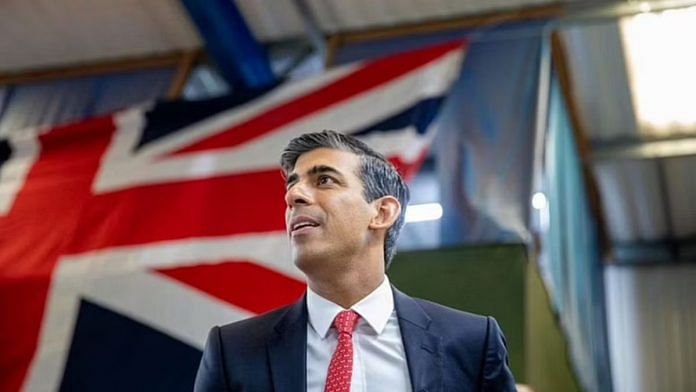Britain’s new Prime Minister, Rishi Sunak, has many identities—British Hindu, person of Indian origin, Indian-African family lineage, and one of the wealthiest British politicians. The political dynamics of the ‘mother of parliaments’ had its own reasons for keeping Sunak out of the PM’s post and another set of reasons for choosing him after his predecessor, Liz Truss, tried to run a government for 44 days. Somewhere in the back of their minds, the Conservative Party members must have realised the need to depend on the successful former chancellor of the exchequer.
Free Trade Agreement with India
The short-lived Liz Truss government had an ambitious agenda of inking the Free Trade Agreement (FTA) with India by Diwali this year. In an FTA, the countries involved can ease norms and customs duties on the goods and services exchanged between them, thereby boosting investment. So, the proposal to increase the number of business visas granted to Indian nationals as part of a potential trade deal was on the cards. It was scuttled by an insensitive statement from hard-line Brexiteer, Home Secretary Suella Braverman, who opposed the prospective generous visa policy saying: “I do have some reservations. Look at migration in this country—the largest group of people who overstay are Indian migrants.” The government came crashing down. Will Rishi Sunak deliver the ‘Diwali gift’ of a generous visa regime along with the proposed FTA among such roadblocks?
Trade Minister Greg Hands told the House of Commons that some 16 chapters across 26 policy areas in the draft FTA have been agreed upon so far. “We are working towards the best deal for both sides and won’t sign until we have a deal that is fair, reciprocal and ultimately in the best interests of the British people and the UK economy,” he added. This will be too little for Rishi Sunak to infuse life into the economy. A strong supporter of Brexit, the new Prime Minister quit Boris Johnson’s cabinet, leaving the economy in ruins. It will be an uphill task for him to build bridges with EU trade partners and undo what he did while residing at 11 Downing Street before moving to house number 10.
India, which is close to signing FTA with the EU, will have to take time to go through the India-UK FTA draft with a fine-tooth comb. Considering the economic revival prospects, India is already ahead of Britain by becoming the world’s fifth-largest economy.
Also read:
The state of Britain’s economy
Britain is witnessing inflation levels not seen since the early 1980s, and the economy will likely have to take a huge hit. The devastating impact of the cost-of-living crisis not experienced for 75 years (post the Second World War) can be attributed to a slump leading to weak income growth and a lack of financial resilience among British households.
The deadly fusion of slow growth and high inequality had been posing challenges for low-to-middle-income Britain’s living standards even before the cost-of-living crisis struck after the Covid-19 pandemic. The combination of Brexit and Covid has dealt a severe blow to whatever little economic recovery measures that were available to policymakers. Even as the green shoots of economic recovery were appearing, the Russia-Ukraine crisis added to the energy shortage and high cost of imports dearer against reduced exports of services. Millions are already struggling to make ends meet in the wake of rising food and fuel costs and huge mortgage bills, knowing their energy expenditure could increase manifold again when the current price cap ends in April 2023. The new prime minister has a long list of miracles to perform with no magic wand in sight.
Besides the economy, another area that requires urgent attention is education, as suggested by the ‘12 Point Plan.’ Interestingly, Britain, which led the first industrial revolution and boasted of its technological prowess, is feeling the need to “examine (Britain’s) whole education system and consider its future in the light of the Covid-19 crisis, declining social mobility, new technology and the changing nature of work.” The main concern among the experts and the political elite was the increasing pressure on the students, the futility of exam/job-oriented education and the increasing inequality due to rising levels of poverty. Can Britain learn from India’s New Education Policy (NEP)?
Meanwhile, in reply to the congratulatory message from India, Rishi Sunak tweeted, “Thank you Prime Minister @NarendraModi for your kind words as I get started in my new role. The UK and India share so much. I’m excited about what our two great democracies can achieve as we deepen our security, defence and economic partnership in the months & years ahead”.
The two democracies and economies can certainly work together, for once as equals, leaving behind their colonial past.
The author is the former editor of ‘Organiser’. He tweets @seshadrichari. Views are personal.
(Edited by Zoya Bhatti)






